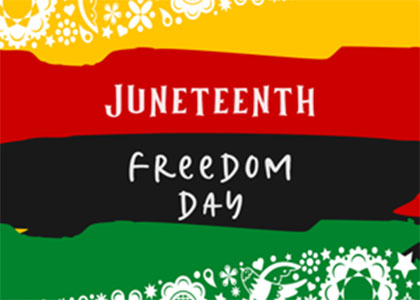
In 2021 President Biden signed a law making June 19 a federal Juneteenth holiday. Juneteenth commemorates June 19, 1865, when Union Major General Granger announced freedom for slaves in Texas, who had remained enslaved despite the Emancipation Proclamation of 1863.
Many large corporations took note and have sought to address the new holiday. In their haste, several prominent missteps have occurred.
- Due to online outrage, a children’s museum was forced to pull its “Juneteenth Watermelon Salad” off the menu.
- A prominent retailer had to remove its limited release Juneteenth ice cream flavor after outcry.
- A retailer had employees quit after it served fried chicken and watermelon for Juneteenth lunch.
What are companies getting wrong about Juneteenth?
- They Haven’t Understood How Their Target Audience Thinks About Juneteenth
Juneteenth has historically been celebrated in Black communities, particularly in the South with food, dancing, games, parades, festivals, and music. However, some Blacks didn’t celebrate it growing up, so they are now growing in their awareness of Juneteenth. To be honest, my family did not celebrate Juneteenth when I was a child, and my parents’ families are from Georgia and Alabama. Only 2/3 of Blacks in a 2021 Gallup poll say they have a lot or some knowledge of Juneteenth. The Black community is diverse in the way it chooses to honor and celebrate Juneteenth. Many Blacks are figuring out how they want to honor the holiday. Companies must understand that viewpoints are diverse and being developed. So, companies cannot think that they can throw together a quick product release or marketing campaign without understanding what their audience thinks about Juneteenth or how it wants them to recognize it.
- Companies’ efforts are perceived as profiteering or superficial and inauthentic
This is where retailers can run into trouble with quick product releases for Juneteenth. People can feel sensitive about companies profiting from or a rush to commercialize Juneteenth. Blacks, in general, tend to be less trusting and more skeptical of institutions. When companies quickly bring to market products to celebrate or honor Juneteenth, Black Americans may look at these efforts with a side-eye. This is compounded when Black Americans are not aware of how companies may be involved in giving back to the Black community or when their corporate leadership does not include Black people. Efforts to sell to Black Americans on Juneteenth without efforts to support Black issues or the Black community is often viewed as inauthentic.
- They do not understand their target audience well enough so as to not offend them with their efforts
In June of 2021, a prominent retailer angered its employees by offering them a menu of fried chicken, mac ‘n cheese, collard greens, and watermelon for a Juneteenth celebration without involving any Black employees in the planning of the celebration. Employees were so angered that some quit, and some went on strike. Why were they upset? It helps to understand the historical context. After the Civil War, freed slaves grew watermelons and sold them as a way to sustain their families. Some Black women made fried chicken and sold it at railroad stops. Racist whites felt threatened by Black economic independence and turned fried chicken and watermelon into racist tropes, as grotesque caricatures of Blacks with watermelon and fried chicken appeared in newspapers, on salt and pepper shakers, plates, and sheet music. So, when marketers or businesses reduce their recognition of Juneteenth to a quick solution of “watermelon” or “fried chicken,” they truly do not understand that they are not just playing into a stereotype, but they are touching something that has an insulting and hurtful history. When businesses rush to capitalize on Juneteenth without really understanding their target audience, they risk damaging their brand equity, and they do not form an authentic connection with Black Americans. They also run the risk of offending the very audience they are trying to connect with and alienate not only them but a larger audience who may be sympathetic to them. Once offended, you may never get them back as a customer.
The key to avoiding these pitfalls is to develop a deeper understanding of the Black consumer. If the goal is to celebrate Juneteenth in a way that is authentic to Black audiences, identifying how they wish to celebrate the holiday and what they would view as honoring is the first place to start.
We will explore ways to connect more authentically with the Black audience and celebrate Juneteenth in the next blog post.
